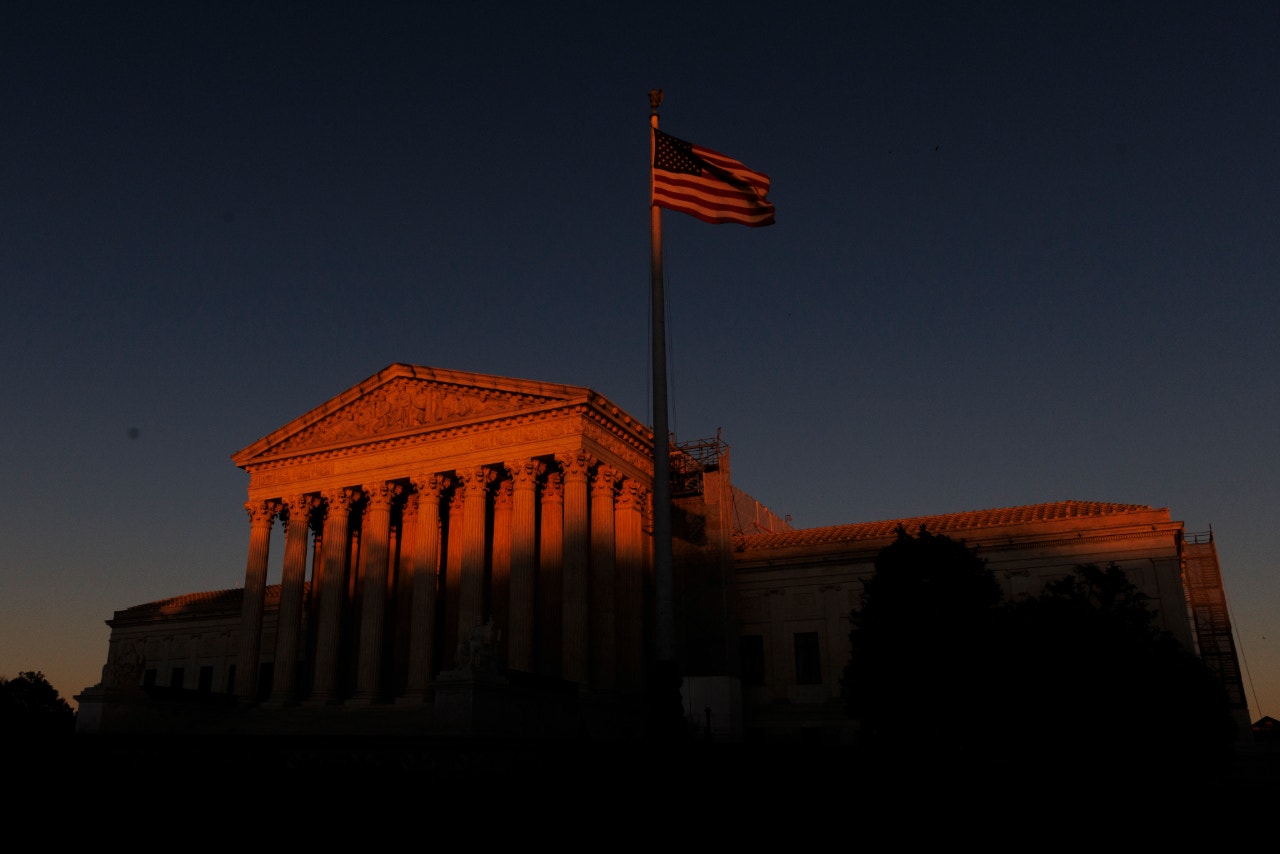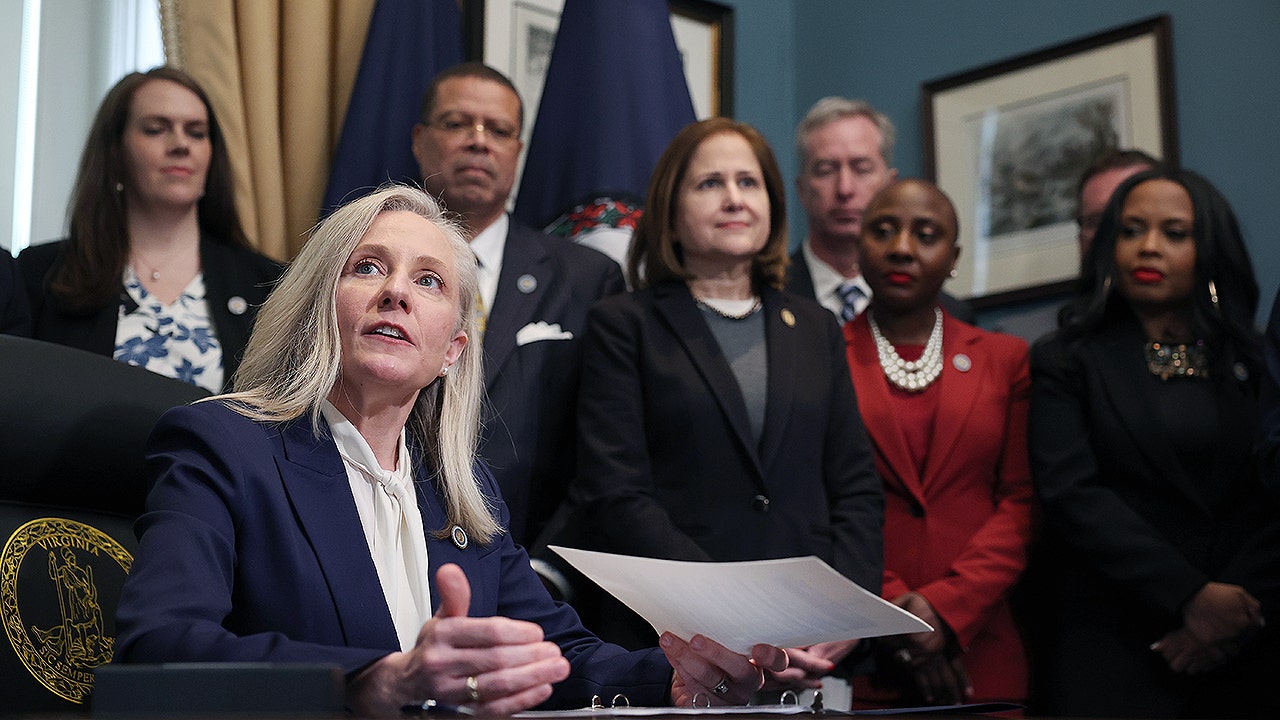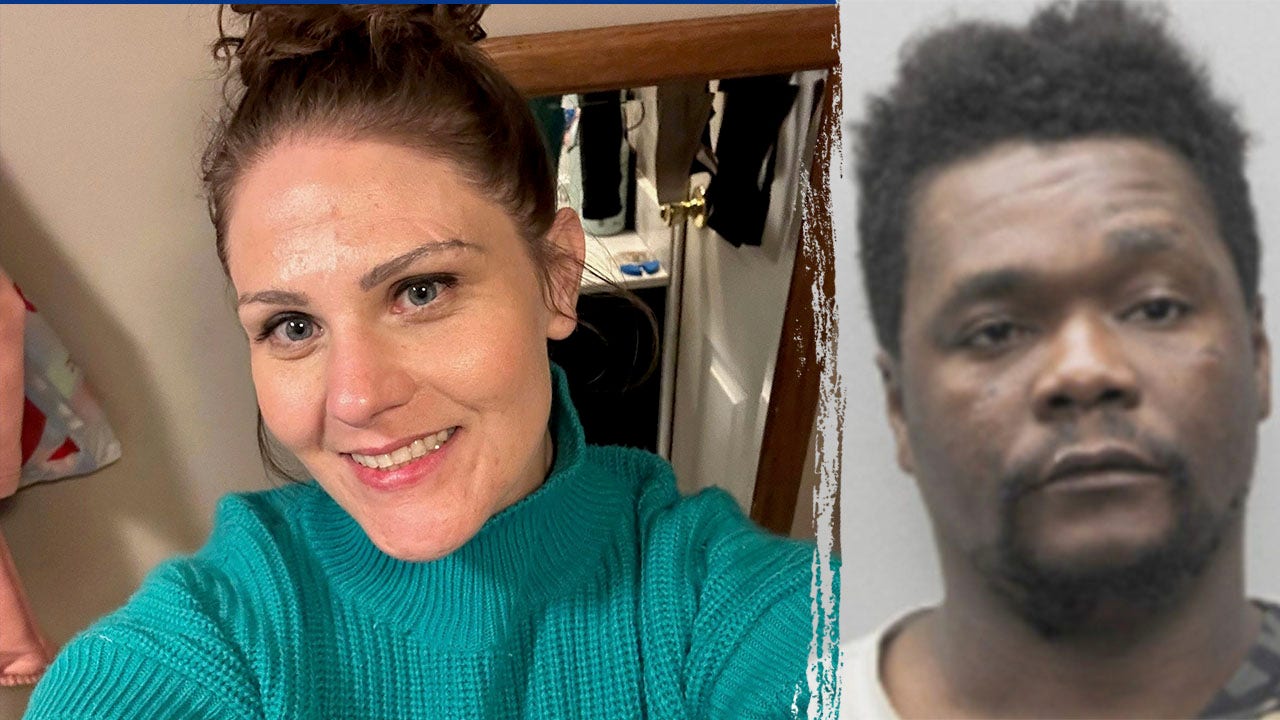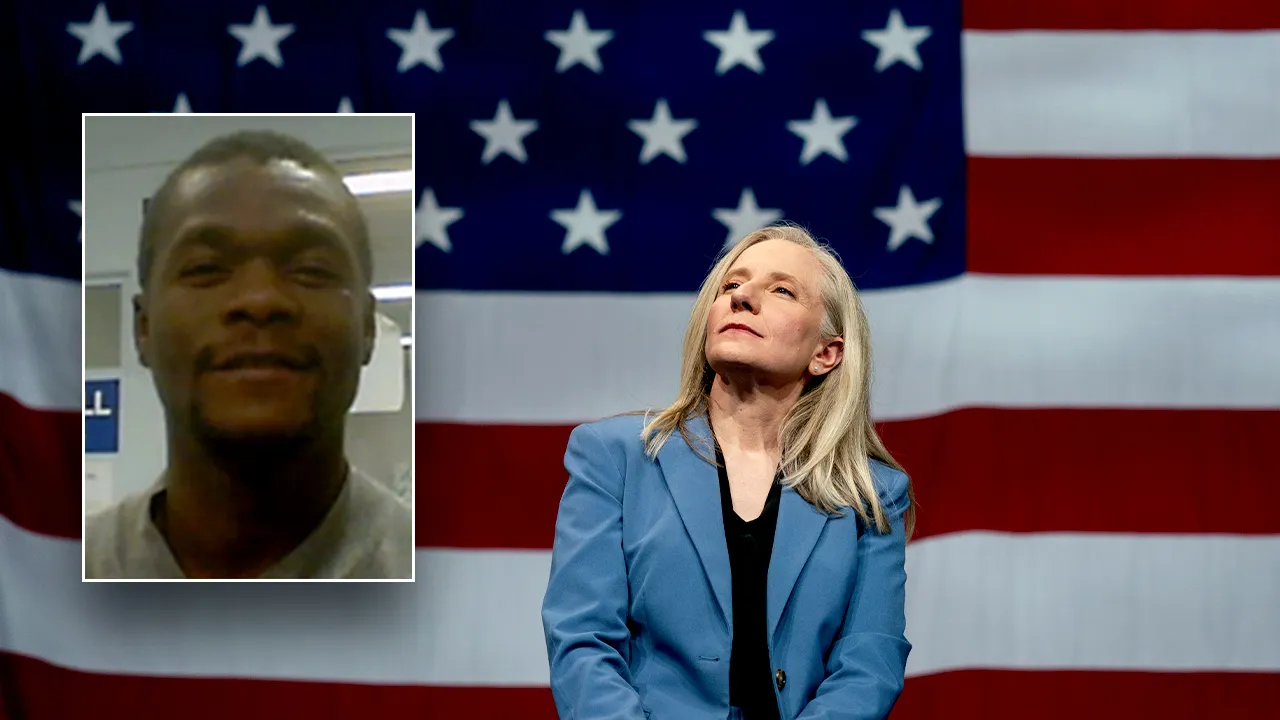Southeast
Supreme Court appears divided over state bans on gender transition 'treatments' for minors

The Supreme Court appeared divided Wednesday over the constitutionality of state laws banning gender transition medical “treatments” for minors, a politically charged issue dealing with transgender rights. The justices heard nearly two-and-a-half hours of tense oral arguments over a challenge to a Tennessee law.
At issue is whether the equal protection clause — which requires the government to treat similarly situated people the same — prohibits states from allowing medical providers to deliver puberty blockers and hormones to facilitate a minor’s transition to another sex.
Hundreds of people on both sides of the issue rallied in front of the court. Some demonstrators held signs saying, “Kids’ Health Matters,” while others promoted “Freedom To Be: A Celebration of Transgender Youth & Families.”
The court’s ruling could affect other current legal fights over transgender rights, including bathroom access and participation in scholastic sports. It could also serve as a legal template to future disputes involving the LGBTQ+ community, and whether sexual orientation is a “protected class” that deserves the same rights that involve a person’s race and national origin.
The three justices appointed by former President Trump could be the key to deciding the socially divisive question. Justices Brett Kavanaugh and Amy Coney Barrett asked tough questions of both sides, and Justice Neil Gorsuch did not speak during the marathon public session.
SUPREME COURT WEIGHS TRANSGENDER YOUTH TREATMENTS IN LANDMARK CASE
The U.S. Supreme Court is seen at sunset. The court heard oral arguments Wednesday in a high-profile case centered on transgender medical treatments for minors. (Aaron Schwartz/SIPA USA)
Justice Samuel Alito cited “hotly disputed” medical studies on the supposed benefits of such medical treatments. Instead he referred to other research from Great Britain and Sweden that reported on the negative consequences from teens that underwent gender transition treatments.
Those studies “found a complete lack of high-quality evidence showing that the benefits of the treatments in question here outweigh the risks,” he told the federal government’s attorney. “Do you dispute that?”
But Justice Sonia Sotomayor countered with evidence from underage individuals that were denied treatment.
“Some children suffer incredibly with gender dysphoria, don’t they? I think some attempt suicide?” she said. “The state has come in here and, in a sharp departure from how it normally addresses this issue, it has completely decided to override the views of the parents, the patients, the doctors who are grappling with these decisions and trying to make those trade-offs.”
Justice Brett Kavanaugh summed up the competing interests facing the high court.
“How do we as a Court choose which set of risks is more serious in deciding whether to constitutionalize this whole area?”
Chief Justice John Roberts voted in the majority in a 2020 case favoring transgender employees who claim workplace discrimination. That opinion was authored by Gorsuch. But in Wednesday’s arguments, Roberts suggested state legislatures – rather than courts – were in a better position to decide such questions over regulating medical procedures.
TED CRUZ, GOP LAWMAKERS URGE SCOTUS TO END ‘MEXICO’S ASSAULT ON OUR SECOND AMENDMENT’
Tennessee Attorney General Jonathan Skrmetti was named a respondent in the court challenge. (AG Jonathan Skrmetti/Fox News Digital)
“The Constitution leaves that question to the people’s representatives, rather than to nine people, none of whom is a doctor,” Roberts told ACLU lawyer Chase Strangio, who was representing transgender minors, parents and a doctor. Strangio is the first openly transgender attorney to argue a case before the Supreme Court.
U.S. Supreme Court members, front from left, Justices Sonia Sotomayor and Clarence Thomas, Chief Justice John Roberts, and Justices Samuel Alito and Elena Kagan, and back from left, Justices Amy Coney Barrett, Neil Gorsuch, Brett Kavanaugh and Ketanji Brown Jackson pose for their official portrait on Oct. 7, 2022, in Washington, D.C. (Alex Wong/Getty Images)
He appeared alongside the U.S. solicitor general, representing the Biden administration in opposing the law in Tennessee, one of about two dozen with similar bans.
Prelogar said the state laws have the effect of “sex discrimination,” since the minor’s gender is key when determining specific medical treatments for those seeking to transition.
She cited the benefits of such “medically necessary care” that can have the effect of preventing “escalating distress, anxiety, and suicidality.” The Justice Department mentioned the experience of Ryan, one of the plaintiffs, who told the courts such treatment “saved his life.”
The American Medical Association, the American Academy of Pediatrics, and the American Psychiatric Association have all endorsed such medical treatments for youths.
Tennessee Attorney General Jonathan Skrmetti told reporters after the arguments, “The Constitution allows the states to protect kids from unproven, life-altering procedures based on uncertain science.”
The state’s lawyer told the justices its law — known as SB1 — “draws a line between minors seeking drugs for gender transition and minors seeking drugs for other medical purposes,” like a congenital defect or precocious or early onset puberty.
In arguments, much of the discussion was whether the laws were applied equally to boys and girls, and whether states had a greater interest in regulating treatment, since it involved underage individuals.
“It’s really for minors,” said Justice Clarence Thomas. “So why isn’t this simply a case of age classification when it comes to these treatments as opposed to a [outright] ban?” for everyone.
But the three more liberal justices were skeptical of the state’s positions.
“It’s a dodge to say that this is not based on sex, it’s based on medical purpose, when the medical purpose is utterly and entirely about sex,” said Justice Elena Kagan.
She added the state law seems to me sending a message that “there’s something fundamentally wrong, fundamentally bad, about youth who are trying to transition.”
“One of the articulated purposes of this law is essentially to encourage gender conformity and to discourage anything other than gender conformity,” said Kagan. It “sounds to me like: we want boys to be boys and we want girls to be girls.”
Trump, who takes office again next month as president, had promised in his re-election campaign to implement certain policy changes that would affect transgender individuals across various sectors.
A ruling is expected by late June 2025.
The case is U.S. v. Skrmetti (23-477).
Read the full article from Here

Southeast
Virginia Democrats talk affordability — and vote to nearly triple their own pay

NEWYou can now listen to Fox News articles!
The Virginia State Senate and its Democratic majority may have voted to nearly triple their pay if a provision inserted into their final budget survives the House reconciliation process and reaches Gov. Abigail Spanberger’s desk.
The development comes as Spanberger has centered her campaign on “affordability,” with Richmond Democrats echoing that they are working to improve their constituents’ personal finances.
Virginia’s legislature itself was founded as a part-time, gentleman’s chamber, where lawmakers would return to their day jobs when Richmond wasn’t holding session.
Virginia Gov. Abigail Spanberger signs executive orders. (Win McNamee/Getty Images)
Proponents of raising the current 1988-established salary of $18,000 for senators and $17,640 for delegates say the structure restricts who can afford to serve as a lawmaker today. Lawmakers also qualify for a $237 per diem, mileage reimbursements, and coverage of office, meeting and other expenses.
Senators’ new salary would be $50,000.
Republicans were quick to criticize the final budget, with the Virginia Senate Minority Caucus saying in a statement that “teachers got a 3% raise, but Democrats give themselves 300%.” The actual increase would be closer to 178%, though one could say the new salary would be 300% of the original.
“The affordability hoax just gets worse and worse,” the caucus said, adding that the chamber’s majority killed a repeal of the car tax — something GOP gubernatorial nominee Winsome Sears ran on — while increasing the state budget by $1 billion overall.
Sen. Mark Obenshain, R-Rockingham, told WVTF it is the “wrong time” to address lawmaker pay.
NEW DEM STAR’S QUICK HARD-LEFT TURN AFTER ‘MODERATE’ CAMPAIGN WON HER COVETED RESPONSE TO TRUMP: LAWMAKER
“It’s supposed to be affordability for working families across Virginia, not members of the General Assembly,” he said.
Virginia’s legislature — the oldest continuous legislative body in the New World — has been making laws since its inception as the House of Burgesses in Colonial Williamsburg, where Spanberger gave the Democratic Party’s State of the Union response.
In her speech, she claimed President Donald Trump is the one “enriching himself, his family and his friends” and said Republicans are the ones “making your life more expensive.”
“I traveled to every corner of Virginia, and I heard the same pressing concern everywhere: costs are too high. In housing, healthcare, energy, and childcare,” she said.
“Americans deserve to know that their leaders are focused on addressing the problems that keep them up at night.”
“Democrats across the country are laser-focused on affordability — in our nation’s capital and in state capitals and communities across America,” Spanberger said Tuesday.
The pay raise could be moot if the Democrat-controlled House of Delegates does not amend its own budget proposal to include the provision.
CLICK HERE TO DOWNLOAD THE FOX NEWS APP
The House’s budget includes $137 million for expanded childcare access, a minimum wage increase to $13.75 in 2027 and $15 in 2029, and a $20 million appropriation for state employees’ and home health care workers’ collective bargaining, according to Washington’s ABC affiliate.
Fox News Digital reached out to the governor, as well as the House and Senate minority leaders, for further comment.
Read the full article from Here
Southeast
Virginia murder suspect in bus stop stabbing had lengthy criminal history, multiple dropped charges

NEWYou can now listen to Fox News articles!
A Virginia murder suspect accused of fatally stabbing a woman at a bus stop earlier this week has a lengthy criminal history filled with multiple arrests, but was let back onto the streets nearly every time.
Abdul Jalloh, 32, is charged with the Monday night killing of Stephanie Minter, 41, of Fredericksburg, at a bus stop shelter, the Fairfax County Police Department said.
Minter was found by officers with stab wounds to her upper body and pronounced dead at the scene, police said.
Abdul Jalloh, 32, is accused of killing Stephanie Minter, 41, at a Virginia bus stop. (Fairfax County Police Department; provided)
Jalloh, 32, who was seen on surveillance cameras exiting the bus with Minter at Richmond Highway and Arlington Drive, was arrested the next day.
He was arrested at a liquor store after an employee called 911. At the time, officers arrested him for allegedly shoplifting. Investigators linked him to the murder a day later.
Authorities were still trying to determine a motive for the killing and what led to the deadly stabbing.
A search of online court records revealed Jalloh has more than a dozen arrests in northern Virginia, including on charges of petty larceny and malicious wounding.
In most of the cases, prosecutors dropped the charges, FOX D.C. reported.
REPEAT OFFENDER ON PAROLE FOR MURDER TIED TO BRUTAL JAIL ASSAULT, ESCAPE HOURS AFTER ROBBERY
Abdul Jalloh seen on a bus in Virginia. (Fairfax County Police Department)
Laura Birnbaum, the chief of staff for Fairfax County Commonwealth’s Attorney Steve Descano, said Jalloh was known to the district attorney’s office and was “acutely aware of the risk he posed to the community.”
“That is why we convicted the defendant of a 2023 malicious wounding charge, and have since made every effort to hold him accountable each subsequent time that he has come in contact with the criminal justice system, including asking him to be held in custody whenever possible,” Birnbaum said.
“Unfortunately, the defendant in this case also had a history of selecting victims with no fixed address – some of the most vulnerable members of our community,” she added. “In multiple cases, we were unable to move forward with prosecution because victims could not be located or contacted.”
Stephanie Minter, 41, was killed on Monday after getting off of a bus in Virginia. (Provided)
CLICK HERE TO DOWNLOAD THE FOX NEWS APP
An obituary for Minter described her as a “happy, jolly” person.
“A beam of light in dark places,” the obituary states.
Read the full article from Here
Southeast
Dem governor under fire after illegal alien allegedly stabs woman to death at bus stop: ‘Heinous’

NEWYou can now listen to Fox News articles!
EXCLUSIVE: The Department of Homeland Security is calling on Virginia’s Democratic Gov. Abigail Spanberger to ensure local law enforcement cooperates with federal immigration officials by handing over an illegal immigrant with a lengthy criminal record who allegedly killed a woman earlier this week at a Virginia bus stop.
Police in Fairfax County, Virginia, arrested an illegal immigrant from Sierra Leone earlier this week on charges of second-degree murder after he allegedly fatally stabbed a woman, Stephanie Minter, 41, who was found dead at a local bus stop with several wounds to the upper body.
The alleged suspect, Abdul Jalloh, 32, also has a criminal history of more than 30 arrests, according to DHS, including for rape, malicious wounding, assault, identity theft, contributing to the delinquency of a minor, assault and pick-pocketing.
The request from the Trump administration comes after the newly elected Democratic governor of Virginia signed an executive order to end cooperation between federal immigration officials and state and local law enforcement, a move several Democratic Party governors have taken recently amid President Donald Trump’s move to increase deportation operations around the country.
The DHS request asking Virginia officials to cooperate with ICE also comes after an illegal immigrant allegedly murdered someone just days after being released from jail for a separate crime in December.
Abdul Jalloh, 32, and Gov. Abigail Spanberger (Department of Homeland Security/Getty Images)
“We are calling on Virginia Gov. Abigail Spanberger and Virginia’s sanctuary politicians to commit to not releasing this murderer and violent career criminal from their jail without notifying ICE,” said Deputy Assistant Secretary Lauren Bis.
“This illegal alien’s murder of an innocent, beautiful American woman came less than 24 hours before Governor Spanberger’s demonization of ICE law enforcement. This heinous criminal is a perfect example of why we need cooperation from sanctuary jurisdictions and the importance of third country removals for the safety of the American people.”
Spanberger’s representatives did not respond to Fox News Digital’s request for comment.
Jalloh entered the United States illegally in 2012, according to DHS, and immigration officials lodged an immigration detainer against him in 2020, whereupon he was granted a final order of removal by a judge who said he could be removed to any country other than Sierra Leone.
ILLEGAL IMMIGRANT WITH PRIOR DEPORTATION SHOOTS DEPUTY IN CHEST, DIES AFTER EXCHANGE: DHS
Protesters, using whistles to alert neighborhoods to ICE activity, face off with Minneapolis police officers in Minneapolis Jan. 24, 2026. (Roberto Schmidt/AFP via Getty Images)
DHS indicated that ICE cooperation to ensure Jalloh’s deportation is evident after a case Fox News covered in December when a criminal illegal alien from El Salvador, Marvin Morales-Ortez, 23, allegedly killed a man just a day after Fairfax County jail officials let him go.
The immigrant from El Salvador had been in custody on charges of malicious wounding and brandishing a gun, but police released him after the Fairfax County Commonwealth’s Attorney’s Office, led by George Soros-backed prosecutor Steve Descano, dropped the charges.
Fox News Digital reached out to the Fairfax County Sheriff’s office to inquire about why the man had not been handed over to ICE.
The sheriff’s office said, “ICE was aware of Morales-Ortez’s incarceration and elected not to seek a judicial warrant to ensure he remained in custody.
Marvin Morales-Ortez, who is living in the country illegally, was released from Fairfax County custody and then allegedly committed a murder the next day. (Fairfax County Police Department/Getty Images)
“The Fairfax County Sheriff’s Office follows all local, state and federal laws when determining whether a person is subject to release from the ADC,” the sheriff’s office told Fox News Digital at the time. “Immigration and Customs Enforcement (ICE) is automatically notified any time a person is booked into the ADC.”
CLICK HERE TO DOWNLOAD THE FOX NEWS APP
The same sheriff’s office did not get back to Fox News Digital’s media inquiry for this story on DHS urging officials to cooperate with federal officials.
Read the full article from Here
-

 World4 days ago
World4 days agoExclusive: DeepSeek withholds latest AI model from US chipmakers including Nvidia, sources say
-

 Massachusetts4 days ago
Massachusetts4 days agoMother and daughter injured in Taunton house explosion
-

 Montana1 week ago
Montana1 week ago2026 MHSA Montana Wrestling State Championship Brackets And Results – FloWrestling
-

 Denver, CO4 days ago
Denver, CO4 days ago10 acres charred, 5 injured in Thornton grass fire, evacuation orders lifted
-

 Louisiana7 days ago
Louisiana7 days agoWildfire near Gum Swamp Road in Livingston Parish now under control; more than 200 acres burned
-

 Technology1 week ago
Technology1 week agoYouTube TV billing scam emails are hitting inboxes
-

 Technology1 week ago
Technology1 week agoStellantis is in a crisis of its own making
-

 Politics1 week ago
Politics1 week agoOpenAI didn’t contact police despite employees flagging mass shooter’s concerning chatbot interactions: REPORT












